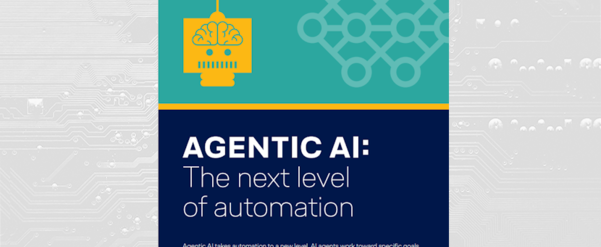One of the many ways Agentic AI is automating workflows is by filtering out booking requests from unstructured emails and processing them automatically. Using AI agents marks a fundamental shift in artificial intelligence. Rather than merely reacting to commands, these intelligent helpers now act completely autonomously and make their own decisions.
Norderstedt, June 3, 2025 - The new whitepaper "Agentic AI: The next level of automation" from Lufthansa Industry Solutions (LHIND) shows companies how to quickly and safely capitalize on the opportunities offered by agentic AI. The whitepaper sheds light on a new stage in the development of Artificial Intelligence (AI). AI agents independently plan and autonomously carry out complex tasks. This significantly expands the scope of AI applications within companies. LHIND experts provide practical examples of how companies can prepare for this technology and the opportunities it offers.
AI Agents: From reaction to action
AI agents differ from previous automation technologies in that they are goal-oriented and able to act. "This gives companies tools that process tasks like humans do, but with the efficiency of digital systems. AI agents access databases and control systems, making decisions within predefined guidelines," says Julian Staub, Business Director of Intelligent Process Automation at LHIND.
For instance, a service agent can analyze a customer request, retrieve information from various systems, and independently decide whether to process the request itself or forward it to the relevant department.
AI agents also have the ability to learn through human or automated feedback. This means that results steadily improve over time without the need for manual implementation of every improvement.
Prerequisites for successful use
One central topic of the whitepaper is the introduction of Agentic AI. In addition to creating the technical prerequisites, companies must adapt their organizational structures. This includes establishing clear governance models. These models specify what information AI agents can access and what decision-making powers they have.
Such a set of rules is essential in multi-agent systems. For instance, a company-wide platform could facilitate the exchange of information and coordinated decision-making among finance, HR, and sales agents. "Controlling these interactions requires clear guidelines to ensure processes run smoothly and data protection is guaranteed," says Dr. Lars Schwabe, CTO of LHIND.
Reclaiming life and working time with AI technology
Schwabe describes collaborating with AI agents as fluid, intuitive, and supportive. "In a few years, we'll look back and realize how archaic our methods of searching for information and preparing for meetings were in 2025. We'll be amazed at how much valuable life and work time we wasted — time that we've now been able to reclaim thanks to AI technology."

